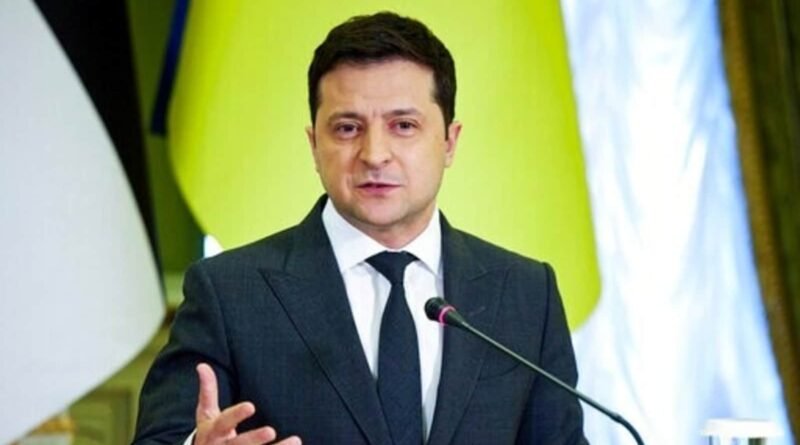Ukraine and the West: Uber-realist power play behind idealist facade
Reading about Ukraine or watching its coverage in the mainstream media, both Indian and Western, one would think that it is a conflict between the rule of international law and lawlessness, liberalism and dictatorship, good and evil. In other words, one would tend to believe that the war – or “special military operation” according to Russia – is being fought over conflicting ideologies and ethics, and it therefore supports the idealist view of relations among countries.
But is it really so? Should the Ukraine crisis be viewed, instead, through the optic of realism, which holds that relations among countries are driven by their security concerns, national interests, and the struggle for power? These questions are being discussed in the international relations community, a significant section of which, including in the West, is leaning towards a realist view. Meanwhile, the mainstream media, which usually echoes the official liberal narrative, remains – implicitly if not explicitly – on the whole in the idealist mode and public opinion by and large seems to have been successfully shaped in this mould.
In this context one is tempted to look at the records of Ukraine’s backers, to see whether they themselves have been acting ethically and in consonance with their professed liberal ideology. NATO, and the USA in particular, are the ones that really matter, but will be kept aside here as their behaviour has been discussed extensively by both academics and other commentator. Instead, a look at one small corner of the panorama, occupied by relations between Israel and Russia (and the Soviet Union earlier), will reveal one or two interesting things.
Israel claims to be part of the liberal West, but has at times enjoyed very friendly relations with the West’s adversary, USSR/Russia. At present, however, things are rather rocky. Even though some commentators feel that Israel has been attempting a somewhat balanced approach on account of a large section of its population being Russian-speaking Jews, they concede that it has persisted in expressing open support for Ukraine. It has also sent non-military aid to Ukraine and even voted to suspend Russia from the UN Human Rights Council. Russia has retaliated by promising political and material support to the Palestinian cause.
The media have hinted that Israel’s supoport to Ukraine might be explained by the fact that the latter’s president, Volodymyr Zelensky, is Jewish. Officially, Tel Aviv has taken a legalistic view with Foreign Minister Yair Lapid remarking that “The Russian attack on Ukraine is a serious violation of the international order.” Herein lies the ingredients of comedy. Some commentators have been quick to point out that Israel has been occupying the Palestinian lands (West Bank and the Gaza strip) and some other Arab territories for many decades in open defiance of the international order expressed through UN resolutions. These resolutions on Israel’s occupation and human rights abuses are too numerous to count. In the Security Council, of course, the USA – which has been speaking the language of ethical behavior and liberal values on Ukraine – has been consistent in using its veto power to shoot down resolutions against Israel.
If one finds it difficult to take the Israeli concern for “the international order” in Ukraine seriously, the Soviet Union showed how idealist actions could give way to realpolitik under the pressure of circumstances. In much of the literature, the trajectory of Russo-Israeli relations is muddled by the frequent, conscious or unconscious conflation of Judaism and Jewry with Zioism the way Hinduism and Hindutva are sought to be conflated in India. However, a trajectory of sorts can be traced. Prior to World WR II, socialists and communists in general and the Soviet Union in particular had been opposed to discrimination against Jews, but not uniformly supportive of the Zionist project of a Jewish state in Palestine – religion as the basis of citizenship was not only against socialist principles, it was not consistent with liberal democracy either. Stalin was strongly opposed to Zionism during that period.
The war brought about attitudinal changes. When Germany invaded Russia in 1941, Stalin appears to have given up his opposition to Zionism and attempted to win the support of Jews worldwide for the Soviet war effort. By the time the war ended, his foreign policy had become pro-Zionist. With talk of Kibbutzes, collective farming and communal living in the then putative state of Israel, it was attractive to him, and he seemed to believe that it would cause British political power to fade away from the Middle East. When Israel was carved out of the then British-administered territory of Palestine and Israel declared independence in 1948, the USSR recognised it even though Zionist militias had been engaged in murderous attacks on Arabs and their forced migration.
Thus, principled, idealist opposition to Zionism had transformed into realist support for it. But this would not last. As friction grew between Israel and Arabs, including neighbouring Arab states and Israel emerged as the protector of US and British interests in the region, the USSR would become a friend of the Palestinans. There have been many twists and turns since then, and Israel and the Soviet Union’s successor, Russia, again find themselves on opposite sides in geopolitics. However, since realpolitik knows no permanent friends or enemies, we can expect more twists and turns in future.
By: Tapas Ray, journalist based in Kolkata.




